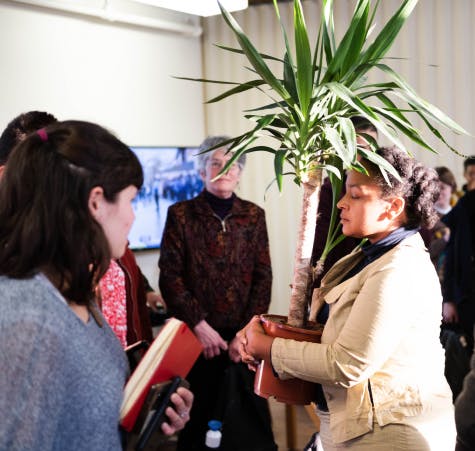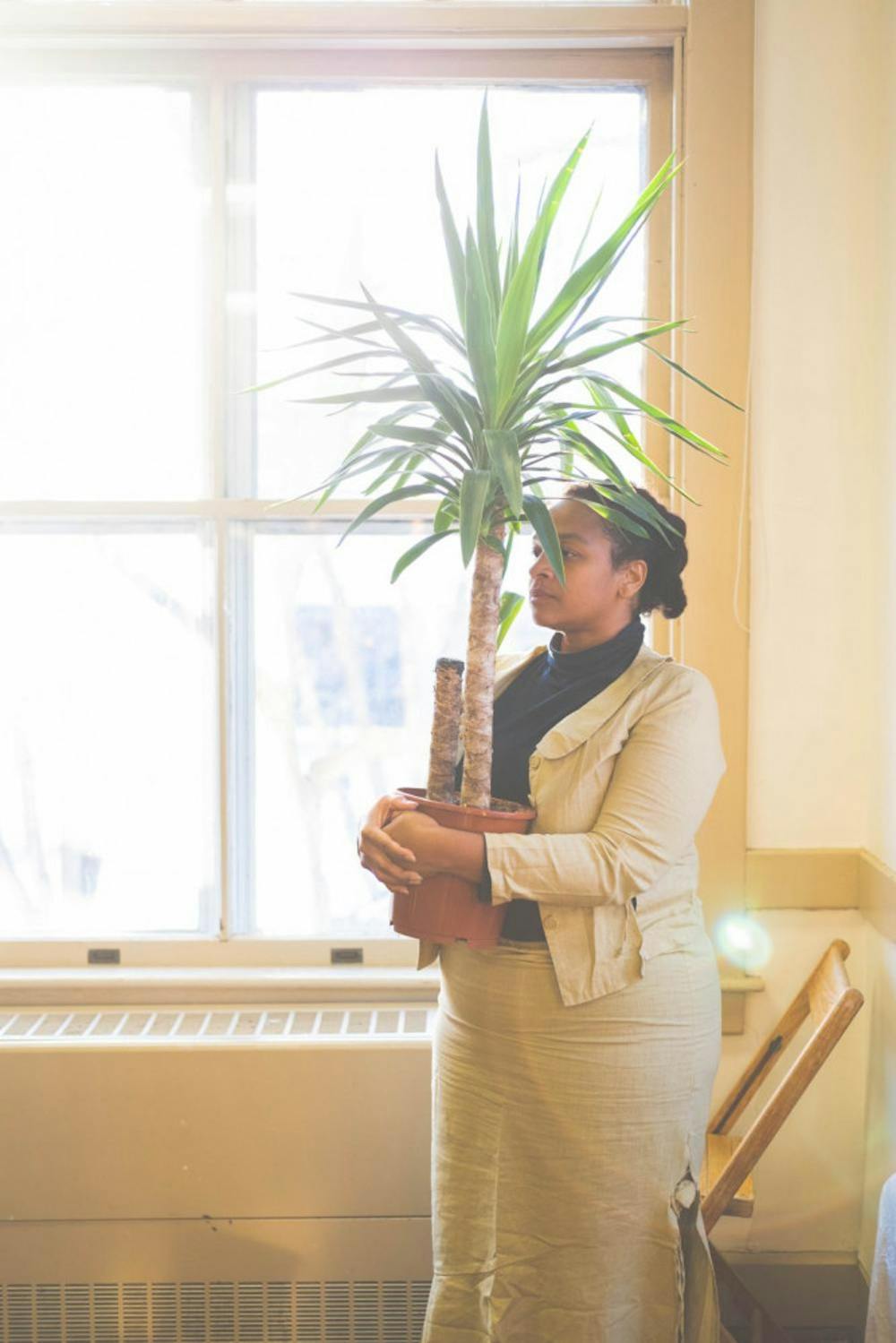Amidst frigid temperatures on campus last Friday, Las Nietas de Nonó delivered a beautifully heartwarming performance titled “Manifestaciones en Periodo de Caza” (“Demonstration During Hunting Season”). A duo from Puerto Rico, sisters Mulowayi and Mapenzi Nonó discussed the economic, social and political aftermath of Hurricane Maria, which devastated Puerto Rico in September of 2017. Presenting chiefly in Spanish, the sisters cooked, performed and chatted with a small crowd gathered in the Coltrane lounge.
Upon entering, the aromatic fragrance of sizzling food greeted the audience. The sisters offered drinks alongside fried cassava cakes topped with a rich sauce made from vegetables and peanuts. Immediately, the room became more intimate as a warm, welcoming ambience flooded the room.
After Mulowayi turned off the stove, the mood changed suddenly as the room drew to a soft hush. Sounds of a waterfall echoed in the background as Mulowayi Nonó entered, carrying a potted plant. Mapenzi, standing to the side, uttered, “espacio para la planta” (space for the plant), telling audience members to move aside and let Mulowayi through. The waterfall served as a symbol of home and of Puerto Ricans’ sense of ownership of their natural homeland.


Weaving quickly through the crowd, Mulowayi entered dressed in bright linens aflutter and a mask on her face. At that moment, Mulowayi's graceful movement dispersed the grid of previously neatly-seated audience, demonstrating the displacement of Puerto Ricans after the devastation left behind by Hurricane Maria.
Mulowayi highlighted the pain caused by natural disasters midway through the performance by pulling on a sheet and huddling herself in the corner of the room, in stark contrast with the confidence displayed earlier in her walk. In describing their performance, the sisters emphasized Puerto Ricans’ cultural displacement in the aftermath of the hurricane. The mask Mulowayi donned was made of coconut shell, a reuse of existing materials which represents the community’s resourcefulness in a trying time.
Following the performance, the sisters presented videos of individuals affected by the insufficient relief provided by the U.S., showcasing the political implications of food and resource scarcity. For months, the sisters explained, Puerto Ricans lived merely on military food, and even potatoes were precious commodities. As Mapenzi describes the push for “la cultura sostenible” (sustainable culture), the words take on a new meaning as viewers learned how a modified way of living could not only use resources to a fuller extent but also bring people closer together. In describing iguanas in Puerto Rican culture, for example, Las Nietas de Nonó shed fresh light on how a modern culinary adaptation impacted local culture: these recipes were developed to incorporate the reptile’s body into food and its skin into art. In the words of Mapenzi herself, “food is always a reflection of what happens in Puerto Rico politically, socially [and] economically.” The performance shows exactly that, giving voice to a struggle with sustenance.
As the session drew to a close, Las Nietas discussed their future aspirations, engaging in a direct conversation with the audiences. Their interactive, multimedia performance is an ongoing project that continues to be adapted and developed as it is performed. It will come to completion in a few months as the sisters work on building their story to spark appreciation of, contributions to and support for marginalized culture. The project will culminate in a final performance in Puerto Rico this summer.
Las Nietas de Nonó discusses equity post-hurricane

SHIRLEY MAO/THE MIDDLEBURY CAMPUS
Comments



